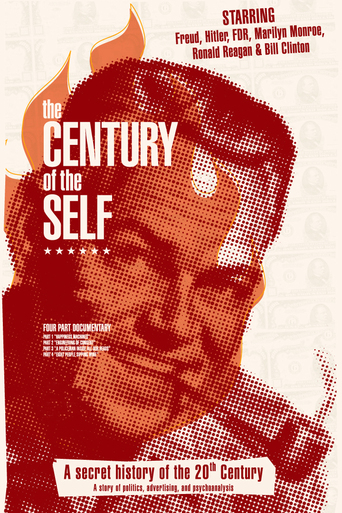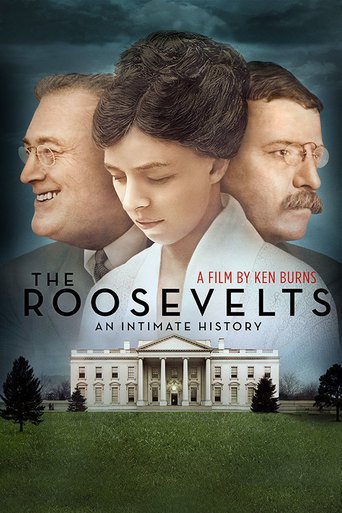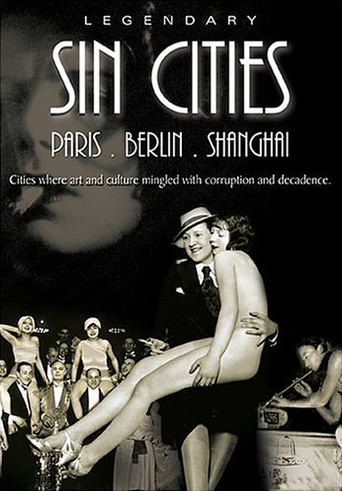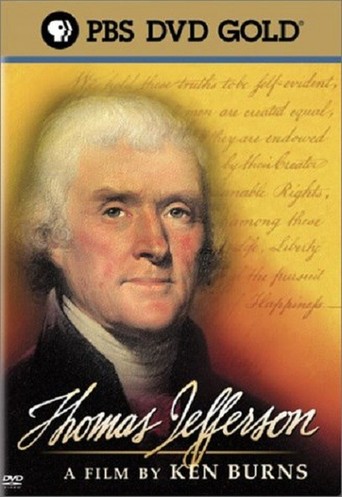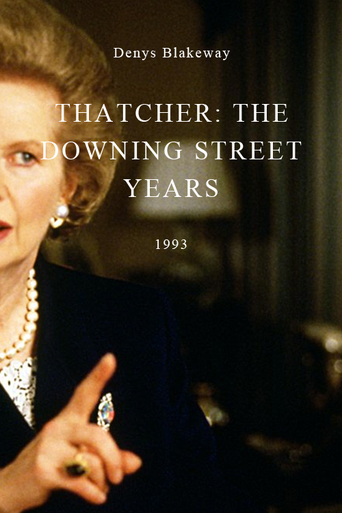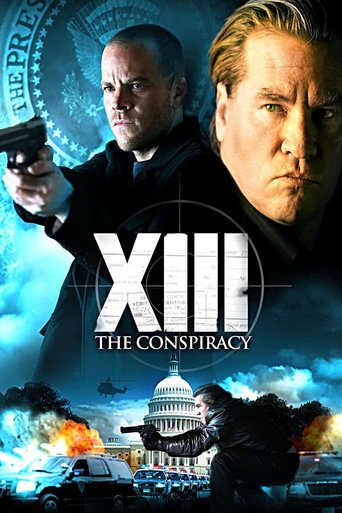The Century of the Self (2002)
A documentary about the rise of psychoanalysis as a powerful mean of persuasion for both governments and corporations.
Watch Trailer
Cast


Similar titles
Reviews
Thanks for the memories!
Good movie but grossly overrated
The biggest problem with this movie is it’s a little better than you think it might be, which somehow makes it worse. As in, it takes itself a bit too seriously, which makes most of the movie feel kind of dull.
One of the worst ways to make a cult movie is to set out to make a cult movie.
This movie is a description of the gradual shift of democracy and business to cater towards the flourishing sense of self expression and self gratification following the great war. Edward Bernays, the nephew of Sigmund Freud championed the idea that the mob, was a gathering of unconscious, irrational desires and if left to themselves would destroy themselves in chaos. He believed that you had to tell them what they wanted. Idiots he called the mob, and by combining different symbols ingrained within the subconscious desires of the individual (He linked woman's freedom rights, with the rights to smoke cigarettes, which were at that time, only socially acceptable for men). He combined these desired symbols with products to make society conform around these capitalist desires. He was the king of capitalist propaganda because of this genius to control the mob. The film then followed the rise of the hippy culture and the growing need for self expression. As Freud believed that deep in the unconscious were bad desires, waiting to come out and wreak havoc on the individual the hippy movement expressed the opposite belief that if you allowed self expression to come out, freedom would be attained and beauty would flourish. Marketers operating under Bernay's old paradigm had trouble marketing to this counter-culture and thus was born the focus group. THe focus group involved sitting a bunch of people down and allowing them to express their deepest desires about a product. Not based on logic but how it made them feel. In this way they shifted from manipulating about how you felt about a product to designing products based around the self expression of the people. But perhaps this wasn't the end of manipulating as they found that the individual wanted something to make them feel like an individual. In this spirit of self expression, everyone wanted to be unique, and capitalists seized this new self-expression. The underlying theme being that, when you want someone to choose something a certain way, you play to their emotions not their rational. Bernays still being right in this as politics learned this move in the 50's as well. They learned that they had to discover the individuals desires not their rational to cater towards. Individuals said they would like to pay tax for welfare but when it came to voting time, they acted out of their desires. In this way Bill Clinton would get footage of him doing the activities that swing voters would find themselves doing, as they must have found that people wanted a president who could relate to them. It wasn't the change in policy that had such an effect on votes, but a change in catering to the persons emotions.
The Century of the Self is one of the best documentaries i've ever seen. Using archive footage Adam Curtis told the story of how today's consumer society came into existence. Also it goes to show how we, the today's consumers, make our choices.It all began by Edward Bernays, the nephew of Sigmund Freud, who did consulting in corporate marketing. Using Freud's ideas Bernays created demand for products people didn't consciously need.As the twentieth century progressed, these ideas grew beyond marketing and influenced contemporary politics. They remained between two poles, though. One claimed that people can't and shouldn't make their choices and needed guidance from those in the know. The other stated how we should be liberated by peeling layer after layer of consciousness until we find what we really want.Of course, the truth was probably somewhere in between, but this hadn't prevented those in power from doing what they want. The joke is that eventually even the politicians started fulfilling the needs and wants of the voters instead steering them.You might as well check Adam Curtis blog on BBC website.
The Century of the Self is a thought provoking, four part documentary describing how Freudian and post-Freudian ideas about human nature were adopted by corporations and politicians to manipulate society and public values in the 20th Century. There is a particular focus on the influence of Edward Bernays, the inventor of public relations, on American culture, business, and politics. This is a well crafted, engagingly paced, and consistently interesting documentary, and has developed a bit of a cult following.This documentary is a bit overly simplistic and tries to fit the messy reality of history into neat little boxes. It gives far too much credit to Freud and his followers, failing to acknowledge that Freud's ideas, even by the 1970s, had been largely discredited and dismissed by the psychological community. The idea of an individual was not new to the 20th Century (let alone Freud or his successors), nor was the idea that most human beings are irrational simpletons (or worse) who must be manipulated and led around by the nose through appeals to their basest emotions and desires, but The Century of the Self tells us that these were revolutionary new ideas and concepts. One didn't need to be a Freudian to come up with advertising that, for example, shows a pretty woman in a short skirt sucking on a tubular popsicle and saying, "Oooh what an exciting man you are!" to a man in a flashy new convertible, but the documentary implies that pretty much all of advertising and public relations until the 1960s was driven by Freudian theories about human nature and the unconscious mind.An embarrassingly ironic note is struck throughout with the use of mood music prompts to indicate to viewers what values they should attribute to different organizations and ideas, such as by playing foreboding, negative music whenever corporations are mentioned by the narrator. This becomes quite absurd in the context of what is basically an extended criticism of attempts by advertisers and politicians in the 20th Century to influence public sentiment through manipulative emotional prompting rather than honest information and debate about ideas.Those criticisms aside, The Century of the Self is a good watch and filled with interesting information and insights.
this is the best documentary i have ever seen, considering i have seen quite a lot of it. don't miss out on watching something that will change your life.I'll try not to spoil anything, but you must swear to watch this documentary. it'll change you to change the world!!!I mean, it tells you why you buy stuff, it tells you what is really going on with the government, it even has topless girls (artistic) and lesbian nuns (nice). plus all of the knowledge of yourself, its a win win situation. seriously don't hesitate, watch it now!! now!!Oh also, it explains a lot about life.

